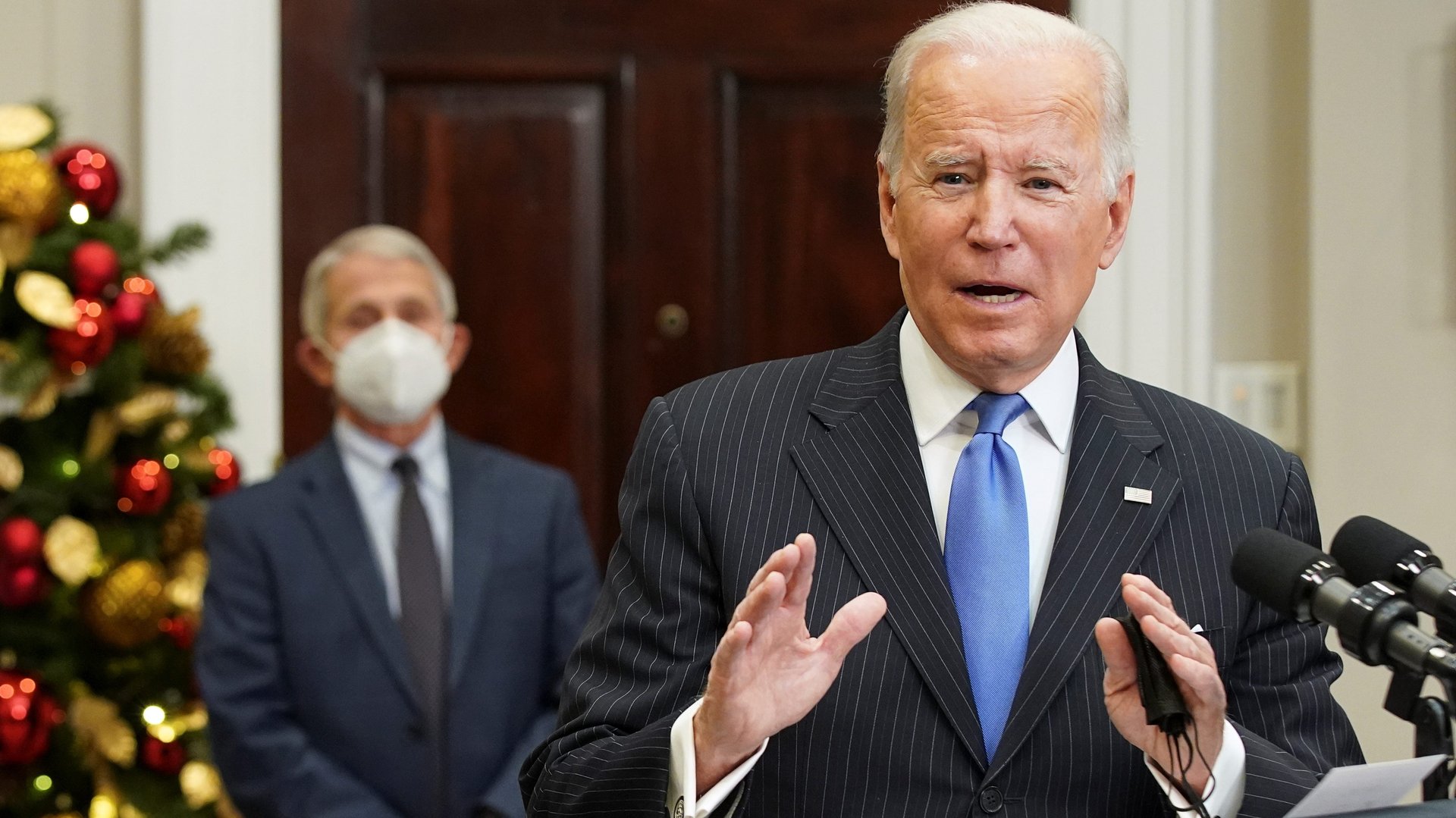Will the US shut its border over omicron?
With omicron cases surging the world over, even countries with high vaccination rates are taking no chances.


With omicron cases surging the world over, even countries with high vaccination rates are taking no chances.
Today (Dec. 16), France said it would stop non-essential travel from the UK—where cases are ballooning—and institute a blanket quarantine rule for returnees starting at midnight on Saturday (Dec. 18). Foreigners can’t enter Israel, where 63% of the population is fully vaccinated, until Dec. 29. Canada, which has fully vaccinated more than 85% of its citizens, not only banned travel from southern African countries, but also won’t accept RT-PCR tests from the region, and it’s now looking to tighten international travel curbs.
Less than three weeks ago, the US lifted a blanket travel ban on more than 30 countries. It continues to ban flights from a handful of southern African nations—Botswana, Eswatini, Lesotho, Malawi, Mozambique, Namibia, South Africa, and Zimbabwe—but with covid cases spiking and deaths mounting, will the US bring back a wider range of travel restrictions?
Will Joe Biden close US borders?
At the end of November, US president Joe Biden said the latest covid-19 variant, omicron, was “cause for concern, not cause for panic,” adding that he didn’t expect more travel bans.
Since then, the US has outlined several measures to fight the omicron outbreak: from asking international travelers to test within 24 hours of arriving on US soil, to mandating masks on buses, trains and flights until March.
While the severity and vaccine resistance of omicron continues to undergo evaluation, vaccination is the other major weapon deployed by the authorities. Biden has urged citizens to come forward and get vaccinated, including booster shoots for adults and jabs for kids. The US has among the lowest vaccination rates in the developed world with just over 60% of its population being fully vaccinated.
The Biden administration is also setting up rapid response teams and securing medicines ahead of a possible surge in cases.
Despite all the frenzy, in the US and elsewhere, closing borders doesn’t seem to be on the US agenda yet. Probably for good reason. After all, the World Health Organization (WHO) has warned that blanket travel plans don’t curb the spread of the virus; instead, they disrupt livelihoods and disincentivize transparent reporting. The UK dropped its travel restrictions on travelers from southern Africa this week, after admitting that omicron was already prevalent.
“There is very little utility of these kinds of bans,” Saad Omer, director of the Yale Institute of Global Health, told NPR. “Unfortunately, from what we know about the epidemiology of [omicron], the horse has probably left the barn.”
What else can the US do to stop omicron?
In the US, too, the new variant has spread far and wide. Omicron cases have been found in at least 36 states. So, inside of looking outwards to ban travel, the US should perhaps look inwards to tackle the crisis.
Here’s somewhere it can start: A host of countries, including the UK, France, Germany, and Singapore, provide coronavirus tests at little or no cost. Meanwhile, the US—which already has among the most expensive tests—is proposing a messy system wherein Americans front the money, retain receipts, and carry out cumbersome reimbursement processes with private insurers. What’s that about, Mr President?